Inside a traditional Sichuan family restaurant [Eye on Sichuan series]
While Sichuan cuisine has always been one of the more well-known cuisines in China, in recent times, fad foods like Zibo barbecue have taken some of the attention away. But one homestyle restaurant in Shanghai seeks to preserve the traditional tastes of Sichuan. As Shanghai-based writer Kyle Muntz finds out, Sichuan cuisine is less about the spice and more about the freshness of ingredients.
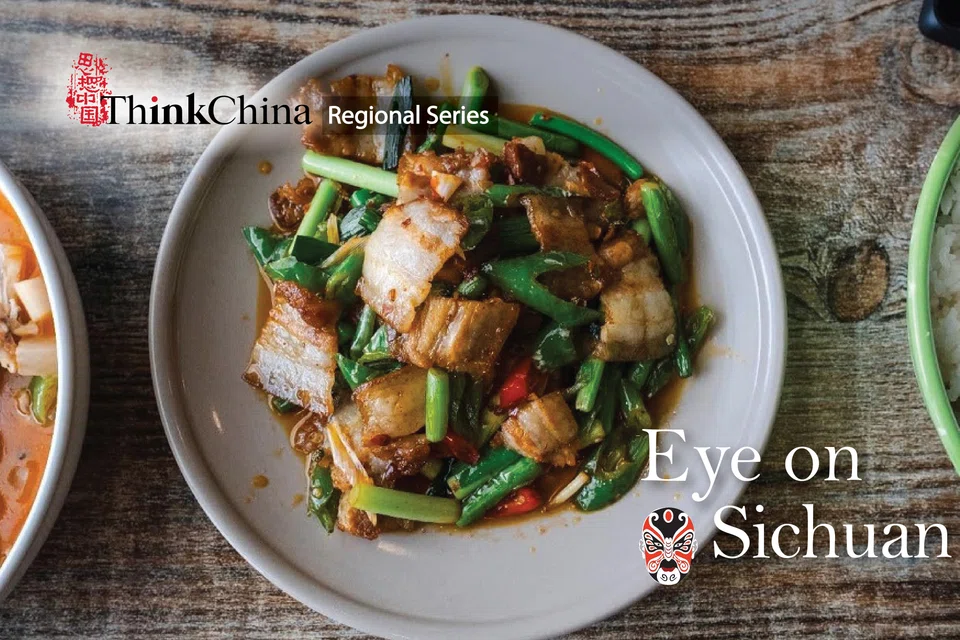
All around China — and increasingly, the world — Sichuan cuisine is famous for its fiery heat. Its most prominent ingredient is the Sichuan peppercorn, added alongside dried and fresh chillis to create an inimitable numbing sensation in the mouth. Often served on plates heaped high with chillis or swimming in pools of bright red chilli oil, Sichuan cuisine is the first that comes to mind for many Chinese who say they can’t eat spicy food.
But for Badi, chef of Eight Sisters Private Kitchen (小四川八姐私房菜) on the east edge of Shanghai, this idea isn’t just a simplification — it’s wrong. “In fact,” he says, exploding with enthusiasm as he answers the question, “in our hometown in Yibin, authentic Sichuan cuisine is not very spicy. Restaurants outside Sichuan change the food to make it spicier, but in many areas of Sichuan, the less spicy the food is, the more we admire it. Instead, what we care about is freshness and the quality of ingredients.”
Here, Badi perhaps agrees with Fuchsia Dunlop, author of Shark’s Fin and Sichuan Pepper: A Sweet-Sour Memoir of Eating in China, and multiple cookbooks on Sichuan cuisine, that food from other places like Chongqing, Hunan and Jiangxi is actually much spicier than Sichuan. She says that in Sichuan, “Chillies are used not in violence, but to awaken and stimulate the palate… an undercurrent of sweetness, a robust beany savouriness, a splash of mellow vinegar-sour, to seduce and delight.”
Badi adds, “Our homemade pickled pepper, chopped chilli and chilli sauce — you can’t get these kind of ingredients anywhere, but they give the food a special taste. The bullfrog has just been cut and it smells amazing. Part of this is because of Sichuan’s climate: we need to eat peppers because of the heavy humidity, and they keep you from getting sick. Our home city is at the end of the Yangtze river, the confluence of three rivers, and it’s a place where people value cooking technique more than anything else. We also like ingredients like Sichuan fish mint, which actually does taste like fish, but not everyone can accept this taste outside, especially in Shanghai where most people like sweet food.”
“My mother had seven sisters... and my mother was the eighth. That’s where the name comes from, because this restaurant was all about her...” — Bamei, who runs Eight Sisters along with her family
Family recipes
Badi and his family have been selling food from Yibin, their home city, for 30 years — but Badi isn’t the original chef. “These are our mother’s recipes. She taught me how to make them, and we’ve been doing them exactly the same for 30 years. A few recipes have her unique, small changes, and you can only find them here. But now, especially while she’s struggling with cancer, it’s important for us to keep her traditions alive.”
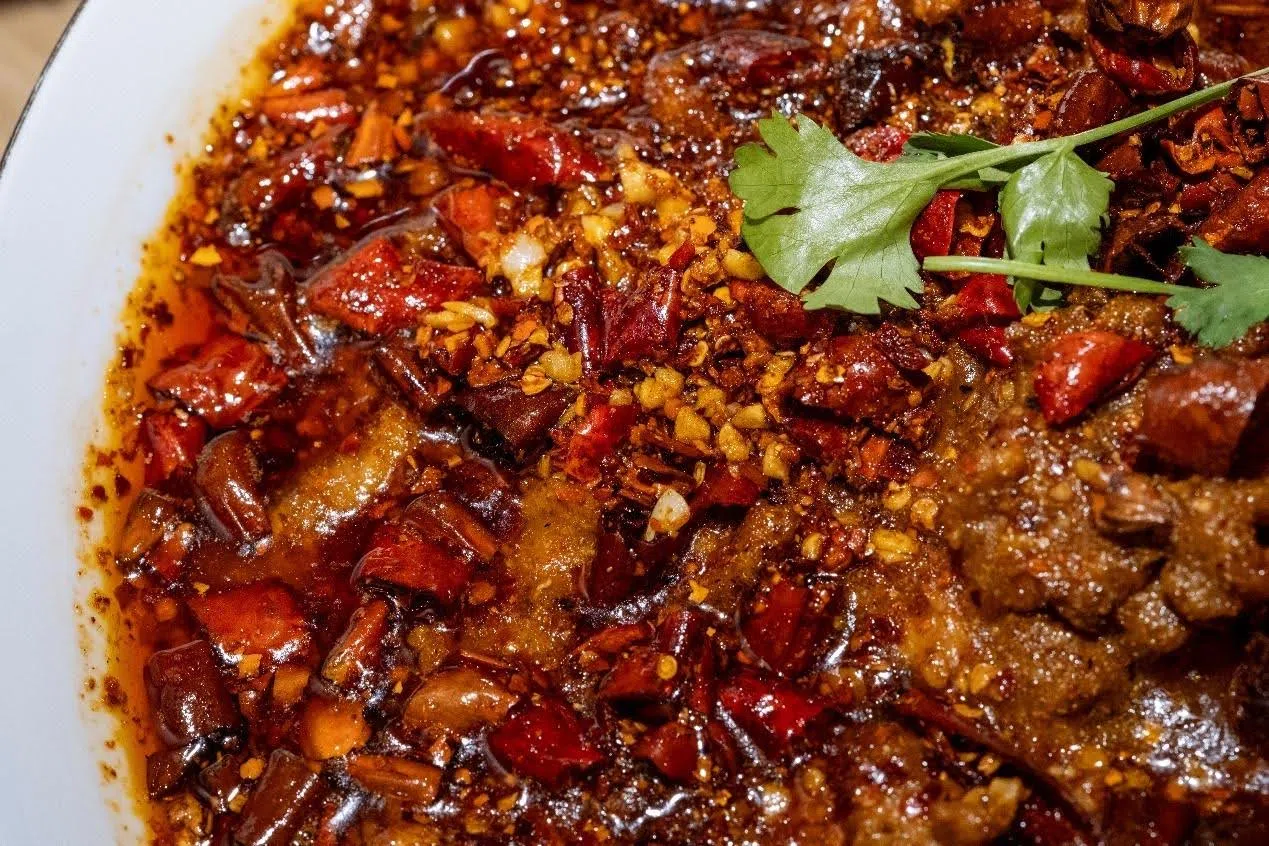
“My mother had seven sisters,” says Bamei, Badi’s sister, who greets customers alongside their father while her brother cooks, “and my mother was the eighth. That’s where the name comes from, because this restaurant was all about her. In the past, my mother cooked all the dishes herself. You had to make a reservation with us in advance every day to get a seat, since the restaurant only has five tables. But since my mother got sick, it’s gotten harder for us to keep up.”
For Badi, the key to good food is a traditional gas stove, which superheats the wok with powerful bursts of flames. “The heat of the wok must reach a certain level. Then we need to pay attention to the colour, aroma and taste. But in Shanghai, many places cannot use gas. When it is burned with electricity, the juice is gone, and it is not as smooth and tender. There’s no guoqi. But here we use a gas stove. We want that old-fashioned taste.”
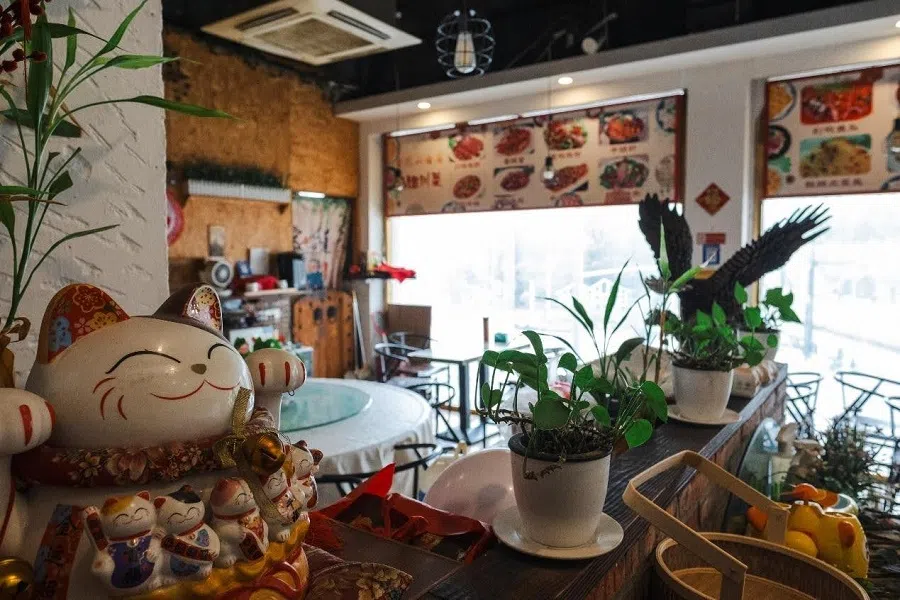
Food with soul
Known overseas by its Cantonese name wok hei and frequently translated as “the breath of the wok”, guoqi is widely considered an essential aspect of Chinese cuisine. This distinct, subtle char is produced by cooking food in a superheated wok, lending an inimitable smoky complexity even to simple dishes like fried rice or noodles. In many cases, food is cooked so quickly that it’s only tossed half a dozen times in the wok. But increasingly, this taste has become harder to find in China’s large cities, not just for Sichuan cuisine but all others as well.
“... Unlike other places that spend money on websites or do activities to attract customers, all we have is the food we cook...” — Badi, Chef-Owner, Eight Sisters
“It’s because there’s no gas in malls, where many of the most popular restaurants are at,” says Scarlett Lu, a dedicated foodie who has been exploring the culinary scene in Shanghai for fifteen years. “They need to go fast, so they just take things from packages and heat them up. The food has no soul; a lot of people are forgetting what their own food should taste like.
“In Shanghai, everything is about speed,” says Badi. “But we don’t have a company, and we don’t have a brand. We are doing traditional business. Unlike other places that spend money on websites or do activities to attract customers, all we have is the food we cook. If you live outside with a fast pace of life, you won’t have this feeling, you know?”
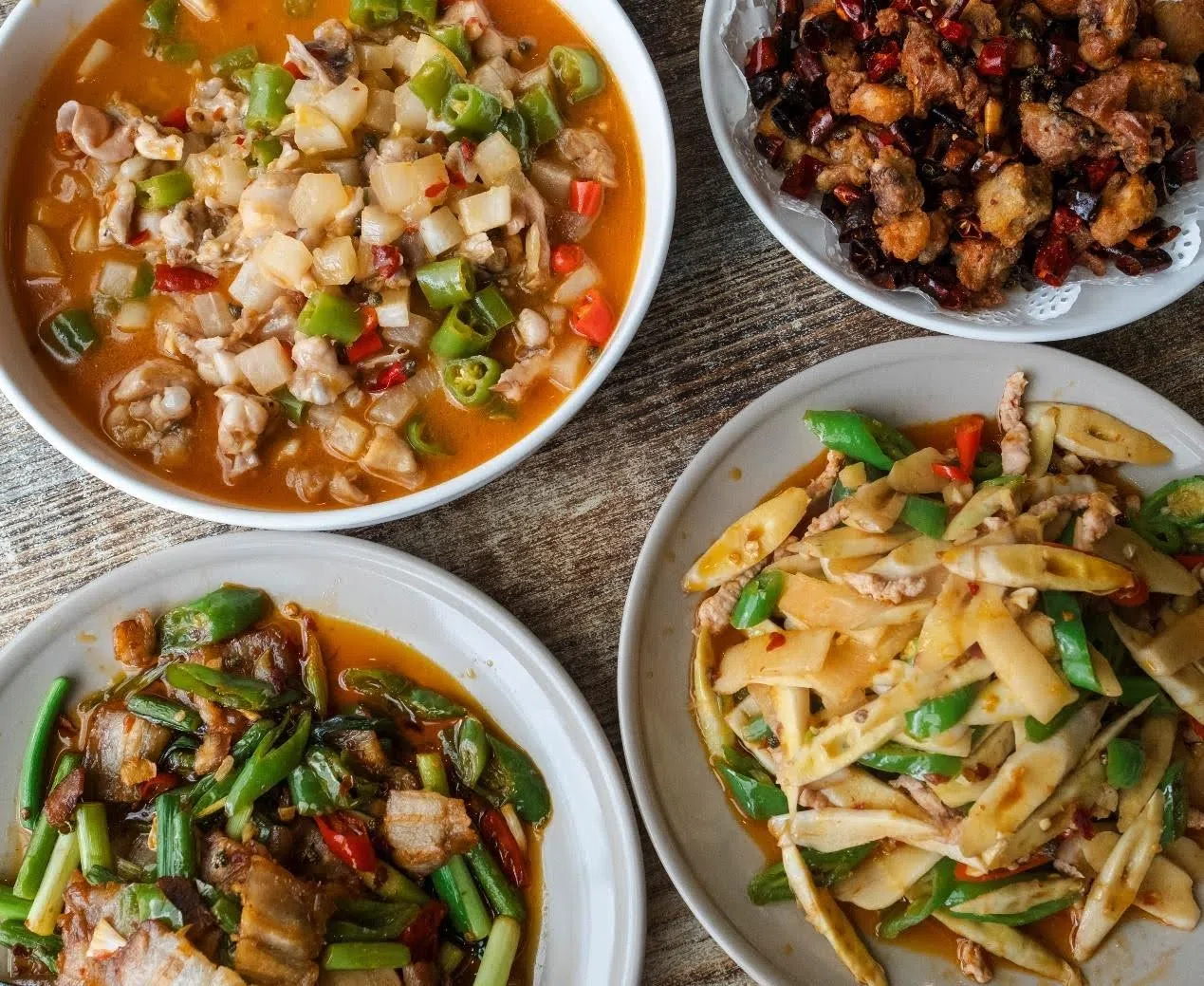
But the competition is steep. Today, despite a resurged interest in smaller family restaurants like Eight Sisters, the key to success is going viral. One restaurant, the first that appears when you search “traditional Sichuan food in Shanghai” on Rednote, was completely packed even at four in the evening. When asked for an interview, they refused. “We don’t want more customers or attention. We’ve already got more than we can handle.” Others, such as Old Wu’s Kichen (老吴家), have recently switched to larger central locations after going viral, as even sudden popularity can present logistical challenges that smaller restaurants struggle to adapt to.
But algorithms, food bloggers, and even the customers can be unpredictable. According to Sammi Sowerby, editor of Time Out Shanghai, which frequently runs features on Shanghai’s food and beverage industry, “Restaurants will get really popular for a few months when they go viral. But then all the customers go — they’re moving onto the next big thing. And even a place that was doing great can start to struggle again.”
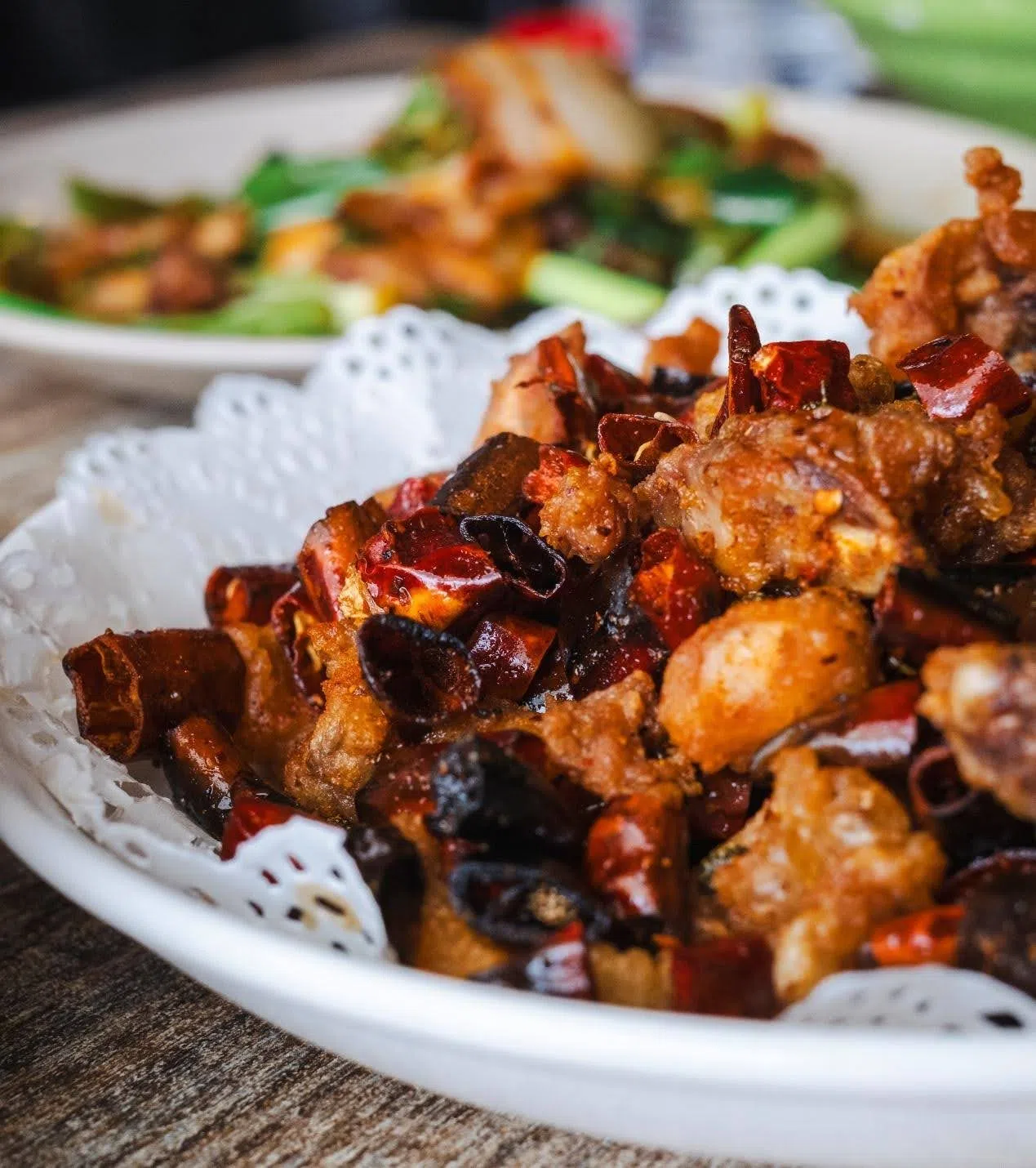
Badi hopes Eight Sisters can be the exact opposite of this. “Here we aren’t like the big chains — it isn’t a one-time transaction. We treat our customers as friends, and honesty is the first priority. Many of our customers have been coming for ten years, and they bring their friends. We’ve never paid for advertising; the door is hard to find, and people need help just to find it.
Competing with food fads
Sichuan food also faces competition from newer specialties in a food landscape that’s constantly becoming more crowded. In the 90s, recalls Peite Bao, a Beijing native, “Sichuan food was one of the first cuisines from far away you started seeing in big cities. You had Cantonese food at the high end, with fancy tables, high prices, and waiters in Western-style suits. Then Sichuan was the mid end. Back then, it was exotic and strange, almost like foreign food.”
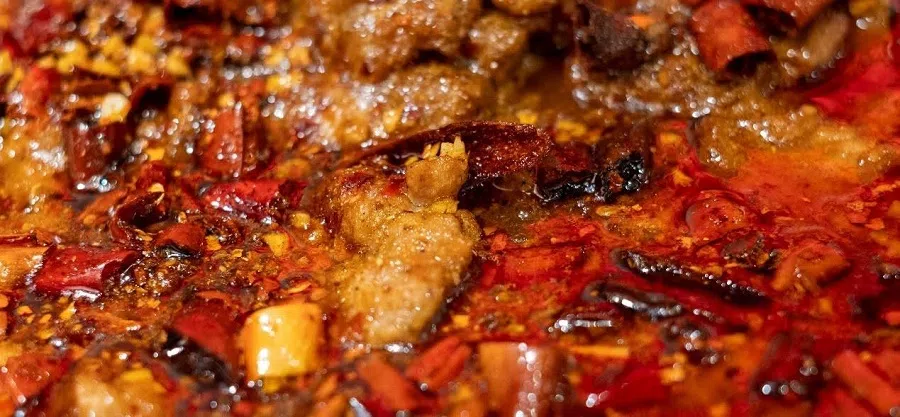
But today, every few months, China is seized by fervour for an obscure dish newly catapulted to national fame. Ten years ago, no one in China had heard of Luosifen, a sour, spicy noodle dish from Guangxi now available on nearly every street. Another popular dish is Zibo barbecue, which became popular during the pandemic amongst students visiting the city for quarantine. Today, local officials know that, if their dish happens to go viral, not only will it make them famous — they’ll also become a destination for tourism, and they dedicate considerable advertising budgets to making it happen.
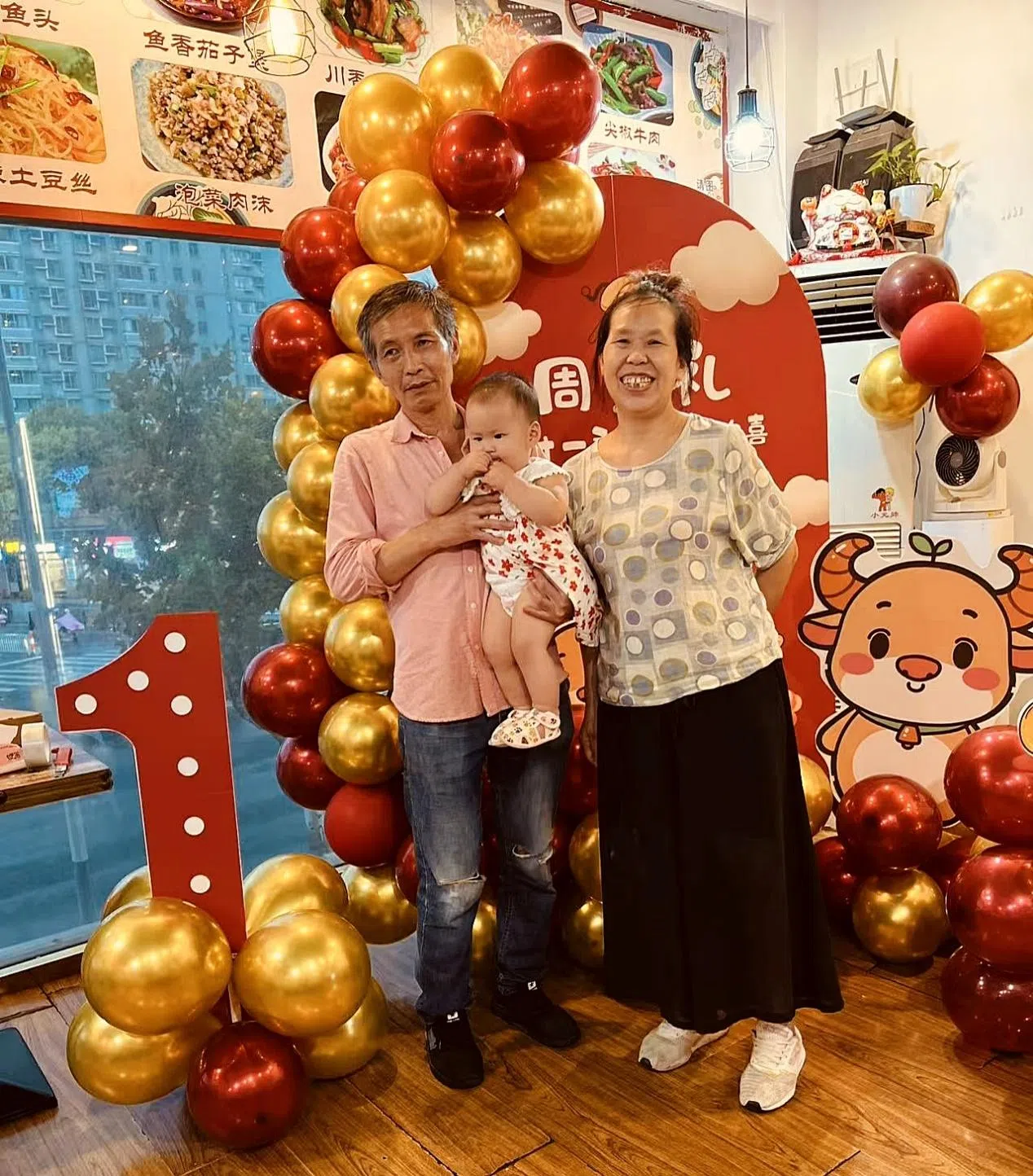
“Sichuan food was one of the first cuisines to catch on around China, back in the 90s when Eight Sisters opened,” says Peite. “That made it easier for families to move around, because it created a demand for chefs from Sichuan. It’s one of the most popular provinces for chefs; they know it’s a good career choice. But now it’s a lot harder, because there’s just a lot more out there.”
“... for us, the old ways are better. There is something that we in Sichuan call ‘the smell of fireworks’. It means that after you come here, your soul will feel a certain comfort.” — Badi
Preserving a legacy
Still, Badi remains determined that Eight Sisters will continue his mother’s legacy. “It’s possible that someday our traditional business will be replaced by the fast-food model. But for us, the old ways are better. There is something that we in Sichuan call “the smell of fireworks”. It means that after you come here, your soul will feel a certain comfort.”
... each time he [Badi] makes pickled pepper frog, the signature dish of Eight Sisters, he uses peppers and radishes the family has pickled themselves.
For Badi, that means that — even when there are cheaper, mass-produced pickled vegetables available on the market — each time he makes pickled pepper frog, the signature dish of Eight Sisters, he uses peppers and radishes the family has pickled themselves. Each chicken is cut fresh to order, and never fried in advance. Occasionally, Dianping reviews mention that with one chef alone in the kitchen, Eight Sisters is slower than other restaurants; particularly during busy hours, customers might wait. But they also emphasise that the wait is worth it.
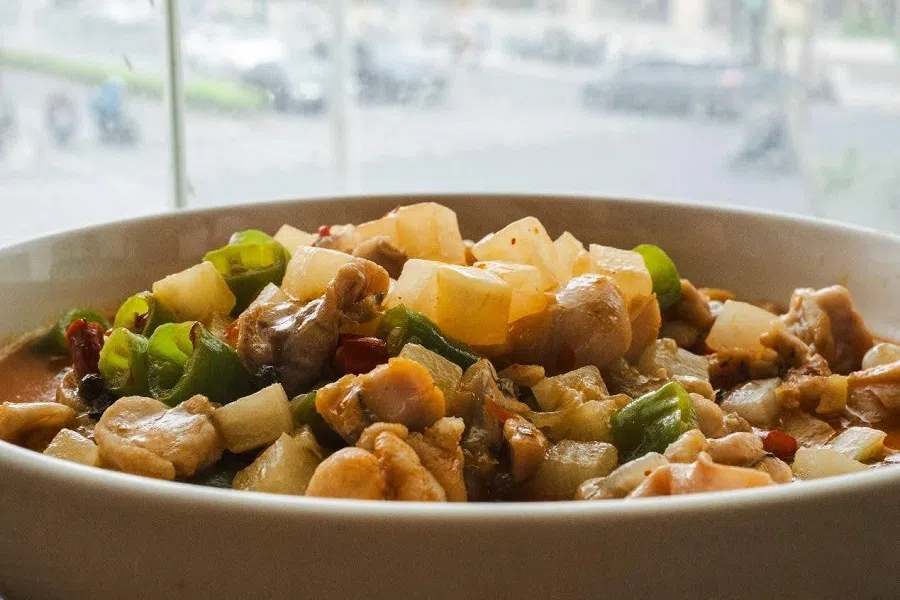
“For us, when we cook,” says Badi, “we must be true to our conscience, be kind, and be honest. Many people told my mother that the food tastes like home. We cannot cook anything else. Some dishes are far more expensive than what I sell them to you, but I still want to make them because they are on my menu. As we say in Chinese: what matters is integrity. Do you understand what I mean?”



![[Big read] When the Arctic opens, what happens to Singapore?](https://cassette.sphdigital.com.sg/image/thinkchina/da65edebca34645c711c55e83e9877109b3c53847ebb1305573974651df1d13a)
![[Video] George Yeo: America’s deep pain — and why China won’t colonise](https://cassette.sphdigital.com.sg/image/thinkchina/15083e45d96c12390bdea6af2daf19fd9fcd875aa44a0f92796f34e3dad561cc)
